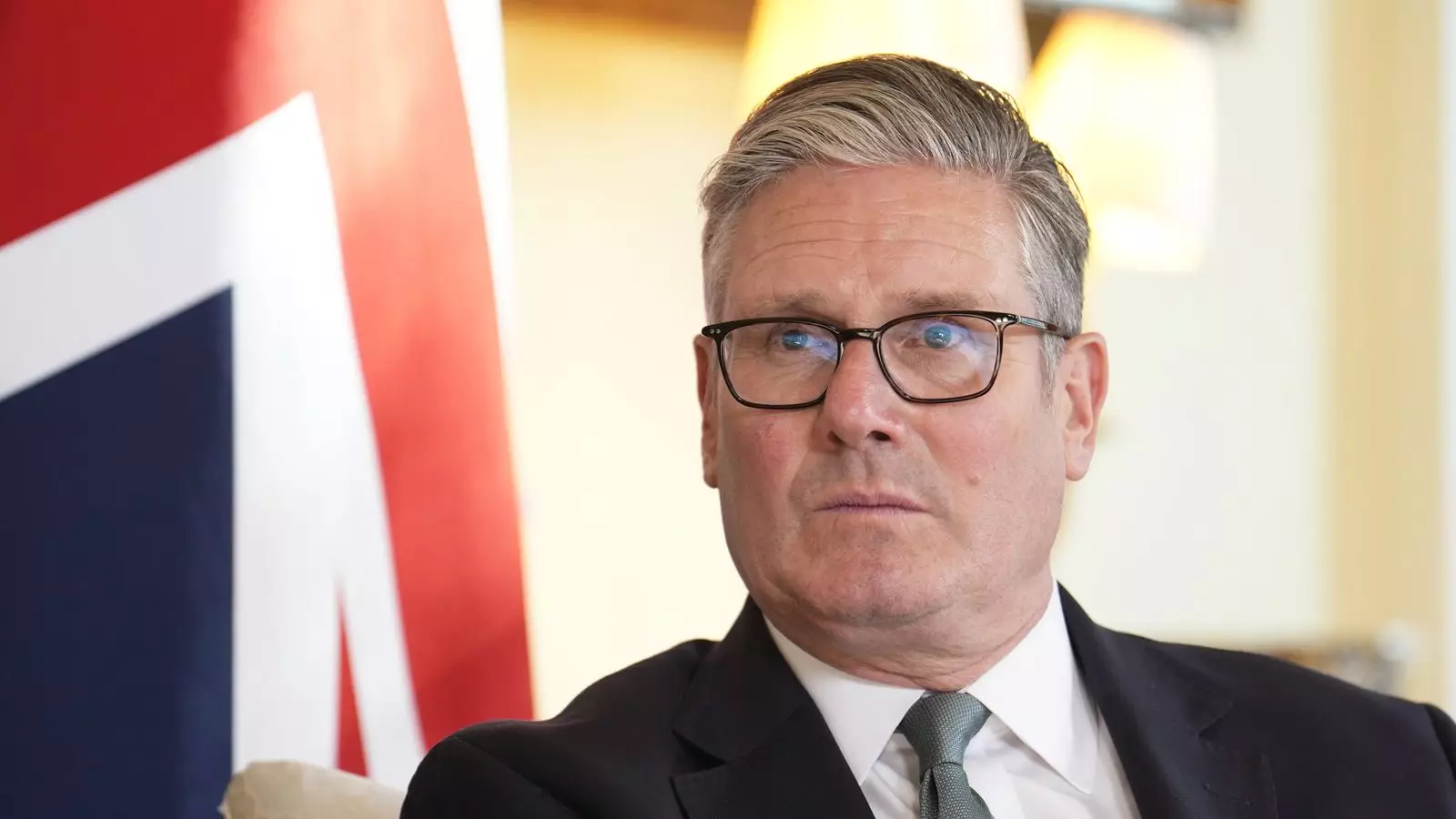In the wake of the United States’ recent airstrikes on Iranian nuclear facilities, the political landscape of the Middle East is once again in turmoil. Sir Keir Starmer, the UK Prime Minister, has stepped into the fray, stating that stability in the region is “a priority.” While his call for diplomacy and negotiation is laudable, it raises significant questions about the real intentions behind these military actions and whether true diplomatic solutions are being overshadowed by the dance of political rhetoric. It is disheartening to witness leaders opting for the allure of military might rather than earnest dialogue.
Starmer’s unequivocal stance that Iran’s nuclear program represents a “grave threat to international security” demonstrates a fear-based approach to foreign relations. It is essential to interrogate this perspective: does militarism foster stability? Or does it merely exacerbate the already fraught atmosphere in the Middle East? The rhetoric around the necessity for action often overlooks the complexities of the situation and the dire consequences of any escalation. While the threat of nuclear proliferation is no trivial matter, resorting to force without exploring every avenue of negotiation seems misguided at best and dangerously shortsighted at worst.
Escalation or Deterrence? The Illusion of Control
Following Donald Trump’s provocative declaration that key Iranian nuclear sites were “completely and fully obliterated,” a familiar pattern emerges: strongman posturing in the face of deep-seated geopolitical issues. Trump’s uncompromising approach to Iran, epitomized by his declaration that “there will either be peace or there will be tragedy for Iran,” does little to foster trust or cooperation. Such statements, laden with bombast, obscure the reality that military strikes incentive responses; they invite revenge rather than reconciliation.
Iran’s reaction, articulated by Foreign Minister Abbas Araghchi, reflects a growing sense of vulnerability and outrage. His warning of “everlasting consequences” implies a cycle of retaliation that could propel the region into further chaos. Each aggressive military intervention can lead to an escalation of hostilities that might spiral out of control, endangering not only Iran and its neighbors but also drawing in global powers. The idea that the use of overwhelming force will lead to a stable outcome is naive and perilous. Moreover, it raises the specter of international law being undermined by acts of unilateral aggression, which, instead of ensuring security, sow the seeds of future conflict.
The Double Standards of Global Power Dynamics
The current situation in the Middle East reveals a glaring double standard in international relations. Israeli Prime Minister Benjamin Netanyahu’s praise for Trump’s military action epitomizes this bias, positioning the U.S. as an agent of “righteous might.” This rhetoric places the overwhelming military response in the framework of morality without acknowledging the devastating consequences for civilian populations and regional stability. The blind support of one-sided military actions only serves to exacerbate radicalization and anti-Western sentiment in the area.
Yet, the most alarming part of this narrative is the undermining of legitimate international bodies like the United Nations. Secretary-General Antonio Guterres expressed being “gravely alarmed” by the escalation instigated by the U.S., highlighting the gravity of acting unilaterally without the consensus of the international community. His fears reflect a broader apprehension regarding the erosion of diplomatic frameworks that are designed to mitigate conflict. The blatant disregard for multilateralism in favor of unilateral military incursions ultimately threatens the very fabric of global peace and security.
The Path Forward: Embracing Real Diplomacy
In emphasizing the urgent need for a diplomatic response, Secure must be held accountable for forging paths of genuine engagement rather than issuing hollow calls for negotiations. It is vital to transform the rhetoric surrounding Iran’s nuclear ambitions into a constructive dialogue that can lead to lasting solutions. If diplomatic avenues are allowed to wither under the weight of military posturing, we risk consigning future generations to a legacy of continuous conflict.
The task at hand is not simply to contain perceived threats but to cultivate a culture of understanding and collaboration among nations. This means acknowledging the rights of nations to defend themselves while simultaneously committing to frameworks that reward good-faith negotiations rather than belligerent actions. The political fabric of the Middle East has long been torn by power struggles; it is imperative we choose to mend it through dialogue, not destruction.



Leave a Reply